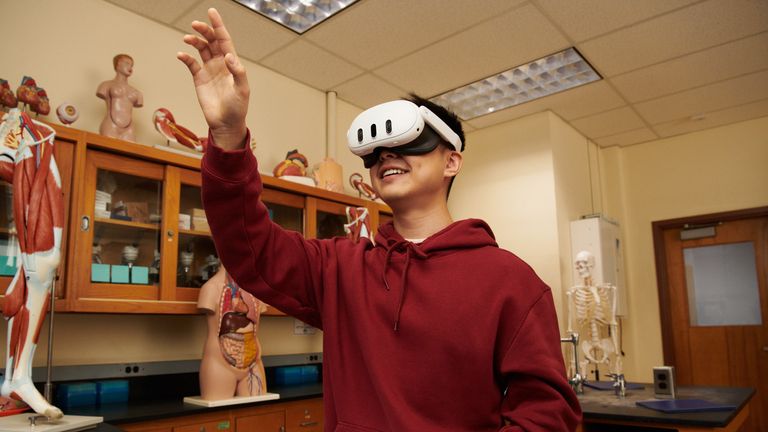It's no secret that our muscles begin to weaken as we age. But scientists are only just beginning to understand the mechanisms underlying these changes, and what our muscles can do to combat them.
Our muscle mass decreases by approximately 3 to 8 percent per decade after the age of 30, increasing our risk of injury and immobility. But not all muscle ages in the same way.
In a new study, published in the journal Nature Aging, researchers from the Wellcome Sanger Institute and Sun Yat-sen University in China have revealed the first comprehensive atlas of aging muscles in humans to better understand what causes this age-associated muscle decline and how we can stop it.
To create their atlas, the team analyzed human muscle samples from 17 individuals between the ages of 20 and 75. By comparing high resolution images and gene expression patterns, the team discovered that the genes involved in controlling our cellular protein factors became less active in the older muscle samples, impairing our ability to repair and regenerate muscle as we age.
The older muscle samples also showed reduced concentrations of a specific muscle fiber involved in explosive muscle performance and increased production of pro-inflammatory molecules, attracting the immune system to the muscle and exacerbating age-related muscle deterioration.
However, the team also saw that several compensatory mechanisms in the muscles seemed to be making up for this loss. These included a shift in gene expression in slow-twitch muscle fibers to behave more similarly to their lost fast-twitch counterparts.
The study's senior author, Hongbo Zhang from Sun Yat-sen University, said that studies like this were essential to support aging populations around the world. "Our understanding of the ageing process itself is limited," Zhang said in a statement. "We now have a detailed view into how muscles strive to maintain function for as long as possible, despite the effects of ageing."
The study was done as part of the international Human Cell Atlas initiative, a project to map every cell type in the human body to better understand how our cells behave in healthy individuals and what happens when things start to go wrong.
"Through the Human Cell Atlas, we are learning about the body in unprecedented detail, from the earliest stages of human development through to old age," Sarah Teichmann, another of the study's senior authors and co-founder of the Human Cell Atlas, said in a statement.
"With these new insights into healthy skeletal muscle ageing, researchers all over the world can now explore ways to combat inflammation, boost muscle regeneration, preserve nerve connectivity, and more. Discoveries from research like this have huge potential for developing therapeutic strategies that promote healthier ageing for future generations."
Is there a health problem that's worrying you? Let us know via health@newsweek.com. We can ask experts for advice, and your story could be featured on Newsweek.
Disclaimer: The copyright of this article belongs to the original author. Reposting this article is solely for the purpose of information dissemination and does not constitute any investment advice. If there is any infringement, please contact us immediately. We will make corrections or deletions as necessary. Thank you.



